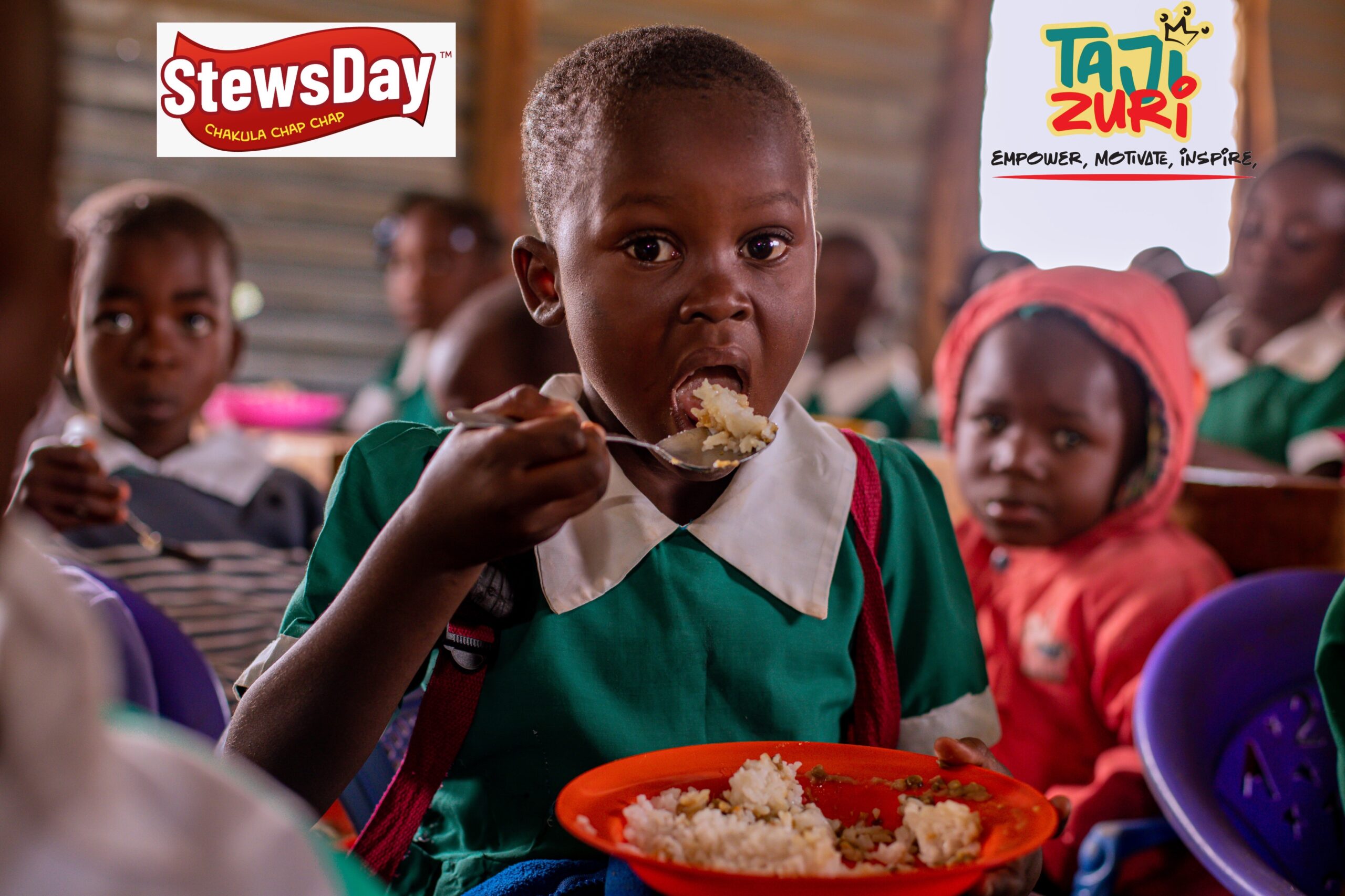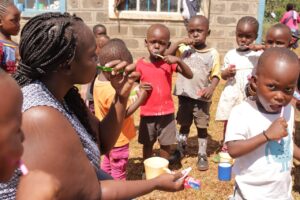Introduction
Shortly after the PE bell rang, A group of excited students rushed out of the classroom, eager to participate in their favorite activity. Today’s session, however, was designed to teach students about nutrition rather than physical education.
The sun was high, and the air outside was too hot to sit in, making the cool shade of the large acacia tree on the school grounds the ideal and refreshing location for today’s engaging nutrition lesson. As the teacher gathered the students, a nutritionist from TajiZuri joined them, ready to lead an engaging discussion about balanced diets. Seated in a circle, the children listened attentively as the nutritionist explained the importance of balanced meals. Explaining how food fuels their bodies, just as exercise strengthens their muscles. With colorful charts and real food examples, the children eagerly learned about the importance of balanced meals. The nutritionist made sure to incorporate fun activities and interactive discussions to keep the children engaged and interested in learning about healthy eating habits. Soon, it was time for the most exciting part: putting together their lunch plates! Today’s menu included a colorful mix of fruits, vegetables, proteins, and whole grains. For young Hera, this was more than simply a lesson, it was a hands-on experience, one that would shape her health for years to come.
Hera’s story is similar to that of many children who, without proper nutritional education, may not fully understand the importance of a balanced diet. What they eat today determines their energy levels, brain function, immunity, and overall growth.
Schools provide an optimal learning environment that reaches children from all socioeconomic backgrounds. Studies have shown that children who receive consistent nutrition education are more likely to make healthier food choices, exhibit improved nutrition knowledge, and demonstrate positive attitudes towards healthy eating. Additionally, involving parents and caregivers in these educational initiatives enhances their effectiveness, as it promotes a supportive environment for children to practice healthy behaviors at home. A more recent study by Wang et al (2019) found that children exposed to nutrition education at an early age develop healthier eating habits, reducing the risk of obesity and diet-related diseases. The research underscores the need for practical engagement, including hands-on meal preparation and active discussions, to enhance learning outcomes. These findings align with TajiZuri’s approach to nutrition education through the Lishe Bora program, which ensures that children are taught about healthy eating and provided with the resources to practice it daily.
But how do we ensure children understand these concepts in a way that sticks? The answer lies in practical, engaging lessons that make nutrition enjoyable and relatable.
Why Teaching Children About Balanced Diets Matters
Nutrition education for children is not just about telling them to eat their vegetables. It’s about teaching them why those vegetables matter and how different foods contribute to their well-being. A balanced diet, composed of carbohydrates, proteins, fats, vitamins, minerals, and water, plays a crucial role in:
- Boosting Immunity: Proper nutrition helps children fight off illnesses and infections, reducing absenteeism from school.
- Supporting Brain Development: Nutrients like omega-3 fatty acids, iron, and vitamins contribute to cognitive function and concentration in class.
- Encouraging Healthy Growth: Proteins and essential minerals ensure strong bones, muscle development, and overall body function.
- Preventing Lifestyle Diseases: Early exposure to good dietary habits can reduce the risk of obesity, diabetes, and heart diseases later in life.
Research supports this. The World Health Organization (WHO) recommends that health literacy should be incorporated in the school curriculum as children begin school, supported by a health-promoting school environment. Similar Studies have found that the most successful school-based nutrition education interventions are thorough, long-term, and comprehensive, taking into consideration both environmental changes at school and family involvement and support.
Making Nutrition Education Practical and Fun
Children learn best through experiences. Teaching them about balanced diets should go beyond textbooks and include:
- Hands-on Activities: Cooking simple meals together helps children understand food groups and portion sizes.
- Gardening Projects: Growing vegetables at school or home makes children more likely to appreciate and eat fresh produce.
- Storytelling and Role-Playing: Using stories like Hera’s or interactive games can help children visualize the importance of healthy eating.
- School Feeding Programs: Reinforcing lessons through nutritious school meals allows children to apply what they learn in real life.
Tajizuri’s Role in Promoting Balanced Diets
At TajiZuri, we believe that no child should have to learn on an empty stomach. Through our Lishe Bora program, we have been instrumental in promoting balanced diets in schools across Homabay, Kenya. By integrating nutrition education with school feeding initiatives, we ensure that children understand healthy eating and have access to nutritious meals.
Our program includes:
- Nutritious School Meals: Our program provides nutritious meals that meet children’s nutritional needs, ensuring they receive essential vitamins and minerals for proper growth.
- Interactive Nutrition Lessons: Through engaging activities, we teach pupils how to make healthy food choices and the importance of eating a variety of foods.
- Training for Teachers and Caregivers: We equip educators and parents with the knowledge they need to reinforce healthy eating habits at school and at home.
- Community Engagement: By involving parents, barazas, and local farmers, we create a sustainable cycle of nutrition awareness and food security.
Conclusion Nutrition education interventions should begin as early as possible, addressing all areas of children’s development (physical, emotional, social, and cognitive). Effective nutrition education involves teaching children and their families about the importance of balanced diets, portion control, and the nutritional value of different foods. Hera and millions of children like her deserve a future where good nutrition is the norm, not a privilege. Schools serve as critical venues for these programs, where curricula can integrate practical lessons on healthy eating, cooking skills, and the benefits of physical activity. By supporting programs like Lishe Bora, we can empower the next generation with the knowledge and access they need to lead healthy lives. Join us in ensuring every child has access to a healthy diet because when we nourish young minds and bodies, we build a stronger, brighter future for all.




